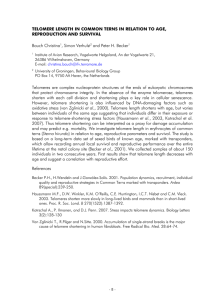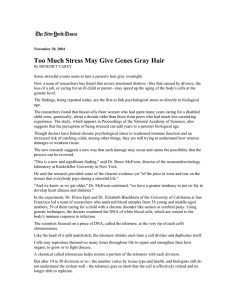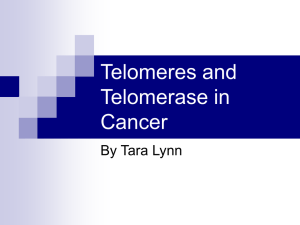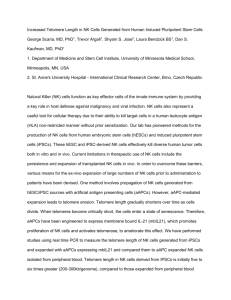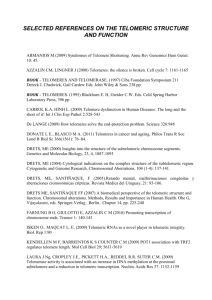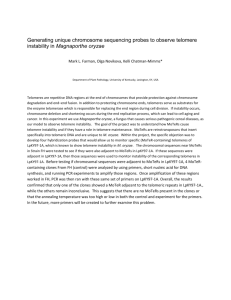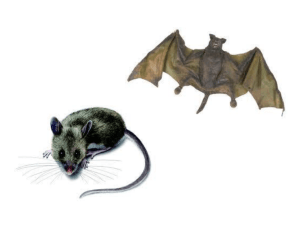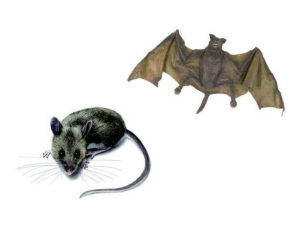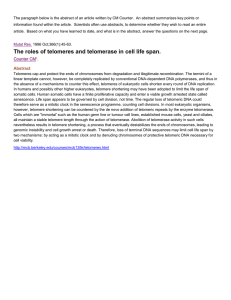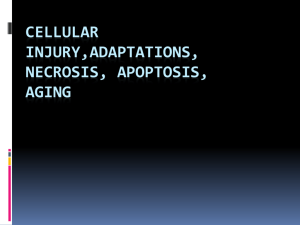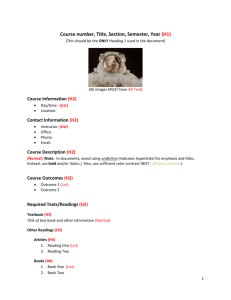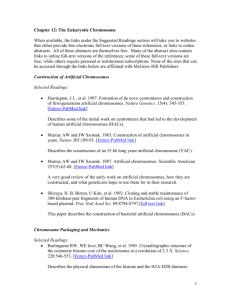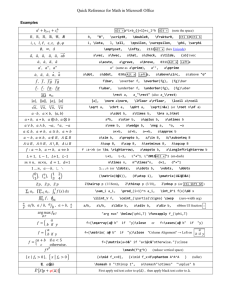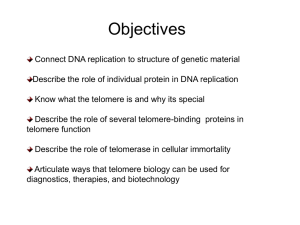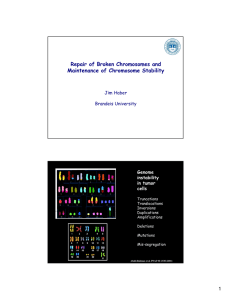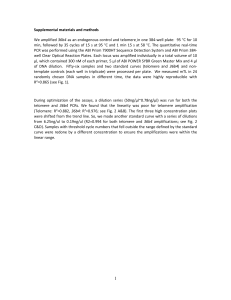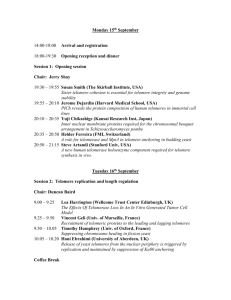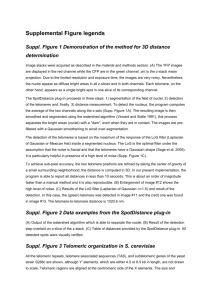GSI-Abstract-2015-Kelli
advertisement
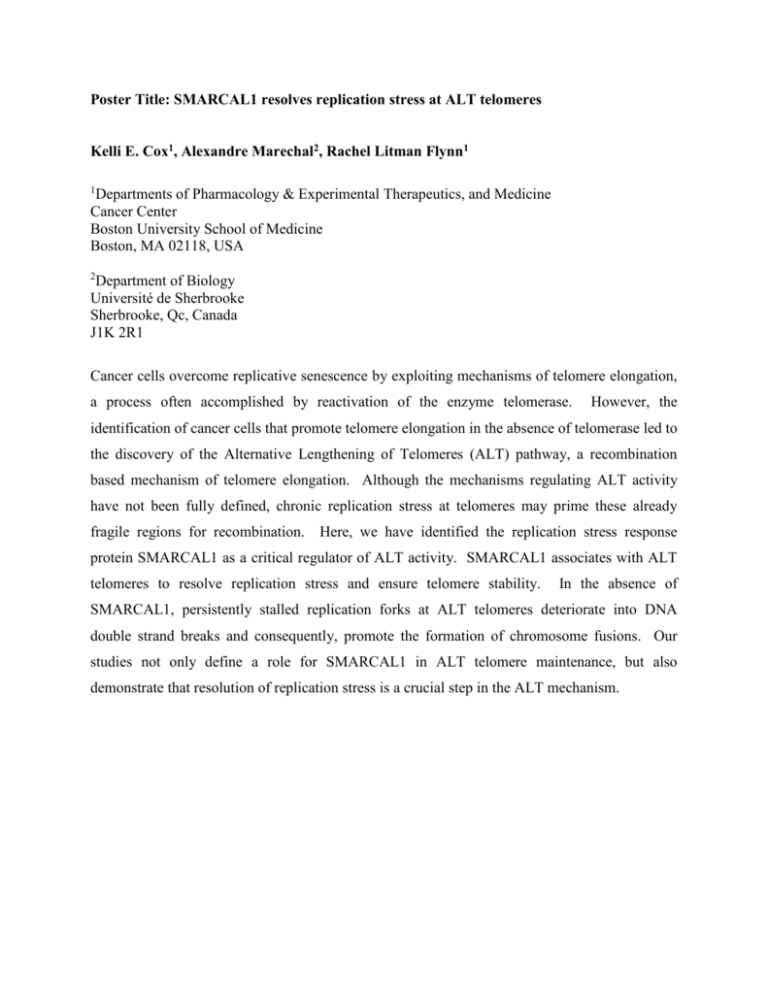
Poster Title: SMARCAL1 resolves replication stress at ALT telomeres Kelli E. Cox1, Alexandre Marechal2, Rachel Litman Flynn1 1 Departments of Pharmacology & Experimental Therapeutics, and Medicine Cancer Center Boston University School of Medicine Boston, MA 02118, USA 2 Department of Biology Université de Sherbrooke Sherbrooke, Qc, Canada J1K 2R1 Cancer cells overcome replicative senescence by exploiting mechanisms of telomere elongation, a process often accomplished by reactivation of the enzyme telomerase. However, the identification of cancer cells that promote telomere elongation in the absence of telomerase led to the discovery of the Alternative Lengthening of Telomeres (ALT) pathway, a recombination based mechanism of telomere elongation. Although the mechanisms regulating ALT activity have not been fully defined, chronic replication stress at telomeres may prime these already fragile regions for recombination. Here, we have identified the replication stress response protein SMARCAL1 as a critical regulator of ALT activity. SMARCAL1 associates with ALT telomeres to resolve replication stress and ensure telomere stability. In the absence of SMARCAL1, persistently stalled replication forks at ALT telomeres deteriorate into DNA double strand breaks and consequently, promote the formation of chromosome fusions. Our studies not only define a role for SMARCAL1 in ALT telomere maintenance, but also demonstrate that resolution of replication stress is a crucial step in the ALT mechanism.


